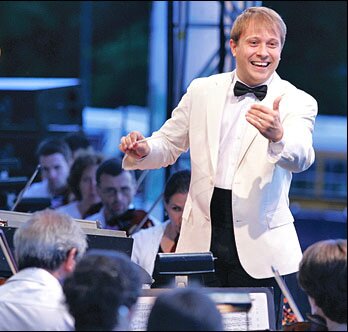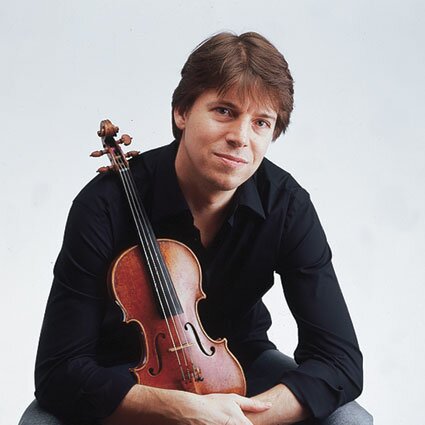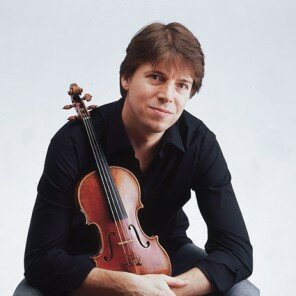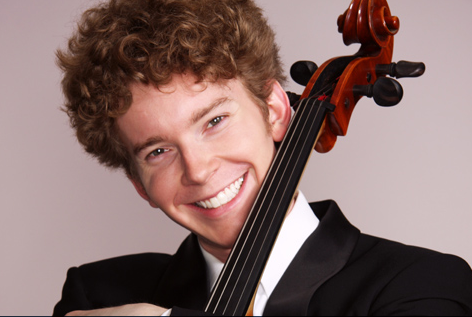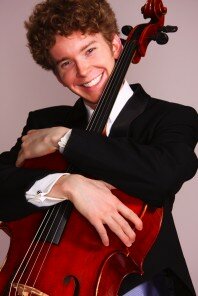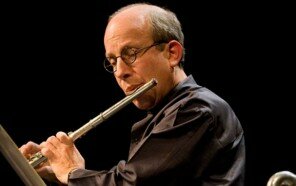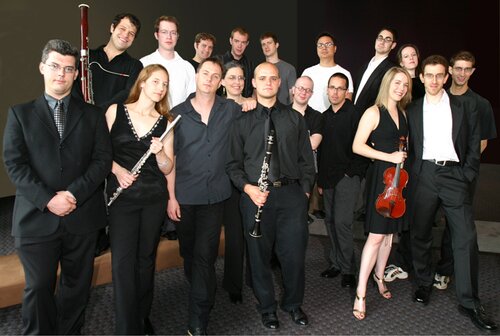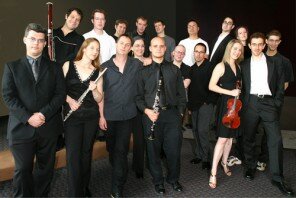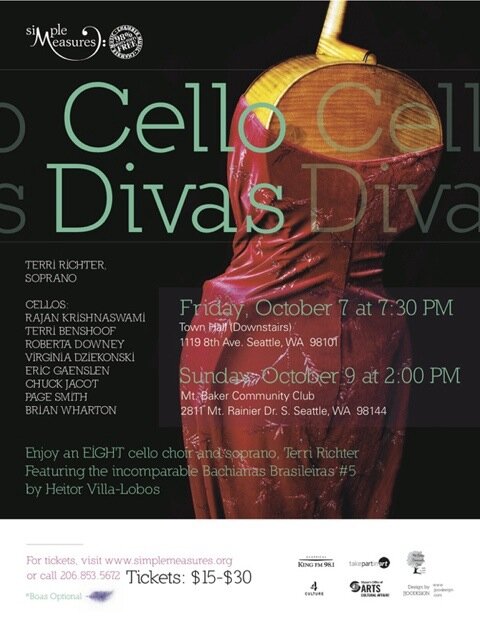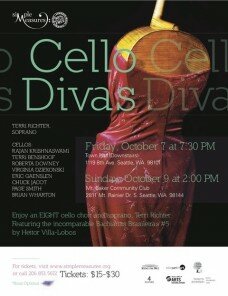Fall has arrived. Summer vacations are coming to an end, and it’s time to head back to school and work. For classical musicians, it’s back to the concert hall for the start of a new season. Now that autumn’s here, Seattle’s classical music ensembles have been announcing their performance schedules for the upcoming year. It looks like we have a fantastic season of concerts in store!
Here are few highlights from the major local ensembles, a list of notable events, and tips on groups to watch in the coming year.
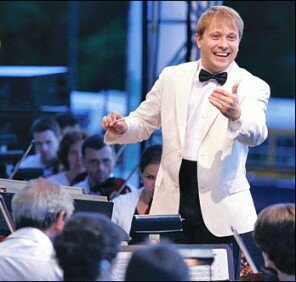
Seattle Symphony
- The usual roster of visiting luminaries returns to Benaroya Hall this year, including Joshua Bell, Itzhak Perlman, Andras Schiff, Hilary Hahn, Emanuel Ax, Garrick Ohlsson, Gil Shaham, Yefim Bronfman, and Anne-Sophie Mutter.
- (Untitled), the Symphony’s exciting new concert series, provides a much-needed space for 20th century and contemporary classical music at Benaroya Hall.
- Sonic Evolution returns for a second year. This popular fall concert features new symphonic works inspired by icons of the Seattle pop and rock scenes. This year’s Sonic Evolution includes local alt-country favorites Star Anna and the Laughing Dogs.
- Hear all four of Rachmaninoff’s piano concertos at Rach Fest, in early January. Four up-and-coming young pianists will perform the concertos in two concerts with the Symphony.
- The Symphony presents their premiere performance of Messiaen’s Turangalîla Symphony in January. This important 20th century work features the ondes Martenot, an electronic musical instrument similar to the theremin.
Seattle Opera
- Seattle Opera‘s season began last month with a gorgeous production of Turandot and continues with Beethoven’s Fidelio in October. Other upcoming productions include Rossini’s Cinderella, Puccini’s La Boheme, and a double-bill featuring Poulenc’s La Voix Humaine and Puccini’s Suor Angelica.
Pacific Northwest Ballet
- PNB has a fantastic collection of audience favorites in store this season. Tchaikovsky’s Swan Lake is likely to draw crowds, as well as productions of two Prokofiev ballets: Romeo & Juliet and Cinderella.
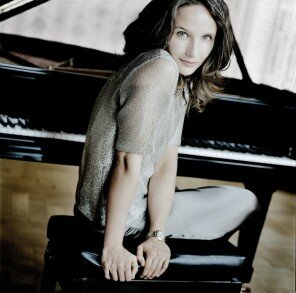
Pianist Hélène Grimaud (Photo: Mat Hennek / DG)
UW World Series
- The President’s Piano Series brings another crop of all-star pianists to UW’s Meany Theater, including Hélène Grimaud, Christopher O’Riley (host of NPR’s From the Top radio program), and Jon Kimura Parker, who will perform his own transcription of Stravinsky’s Rite of Spring.
- Prepare for an impressive line-up of chamber music concerts this season with the International Chamber Music Series. Seattle audiences will be treated to performances by the Emerson String Quartet, Juilliard String Quartet, Tafelmusik, Tokyo String Quartet, and the Chamber Music Society of Lincoln Center.
- This season’s World Dance Series includes two exciting collaborations between international dance companies and local classical music ensembles. In November, the Paul Taylor Dance Company will team up with Seattle Modern Orchestra for a piece featuring music by Arvo Pärt. Then, in January, Compagnie Marie Chouinard will be joined by the UW Symphony Orchestra for a performance of Stravinsky’s Rite of Spring.
Early Music Guild & Seattle Baroque Orchestra
- The Early Music Guild’s International Series presents a prestigious list of visiting ensembles this season, including Musica Ficta, Hesperion XXI, the Baltimore Consort, the King’s Singers, and Tafelmusik. Also on the calendar is a special performance of the epic poem Beowulf by harpist and bard Benjamin Bagby.
- Bach fans will be pleased to hear that the Seattle Baroque Orchestra is planning two concerts of Johann Sebastian’s music this season. In addition, soprano Ellen Hargis returns to Seattle for a program of arias from Italian Baroque operas.
TownMusic
- TownMusic artistic director Joshua Roman kicked off Town Hall’s classical music series this week with a concert of piano trios. The series continues with performances from the musical comedy duo Ingudesman & Joo (of “Rachmaninoff Had Big Hands” fame), the Talea Ensemble, JACK Quartet, and violinist Jennifer Koh.
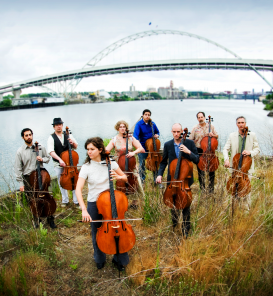
Portland Cello Project (Photo: Jason Quigley)
Ensembles to Watch
- The Seattle Metropolitan Chamber Orchestra may be a new orchestra on the block, but they have an exciting fourth season in store. Their season opener features Vaughan Williams’ beloved Fantasia on a Theme of Thomas Tallis.
- Lutenist Stephen Stubbs’ early music ensemble Pacific Musicworks is back with another season of ambitious programming, including Monteverdi’s Vespers of 1610, a collaboration with the Seattle Dance Project, and a performance of Handel’s newly-discovered cantata Gloria.
- Tacoma’s Broadway Center for the Performing Arts get my vote for “venue to watch” this year. This season they’ll present the Fireworks Ensemble, experimental cellist Zoe Keating, the Portland Cello Project, and violinist Mark O’Connor.
Exciting Events
- Philip Glass shuns Seattle in favor of the Eastside for the second year in a row. The renowned composer returns to Kirkland Performance Center in late October for a performance with Foday Musa Suso, a master of the African Kora.
- Celebrate the John Cage centennial with the Seattle Modern Orchestra. Their John Cage Festival in early November features a documentary about the composer’s life as well as performances of some of his most famous works.
- Known for their orchestral arrangements of Radiohead, Queen, and the Arcade Fire, the ever-popular Seattle Rock Orchestra rings in the new year with a concert of new works for orchestra.
- Chicago-based contemporary music ensemble eighth blackbird pays a visit to Kirkland Performance Center in January. This GRAMMY-winning ensemble is a must-see for new music fans.
- Choreographer Donald Byrd and the edgy, experimental dancers of Spectrum Dance Theater present their take on Carl Orff’s Carmina Burana in April.
